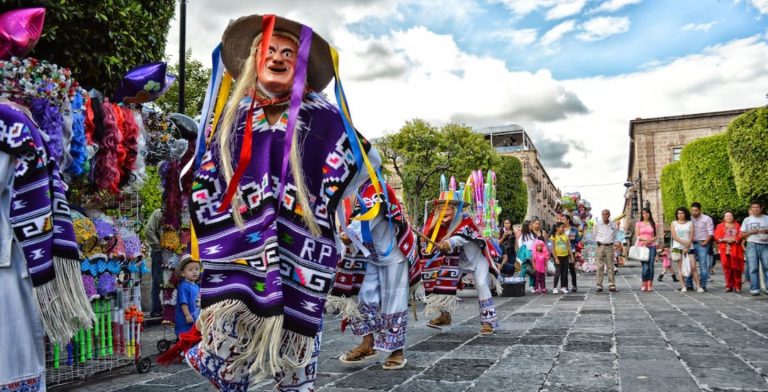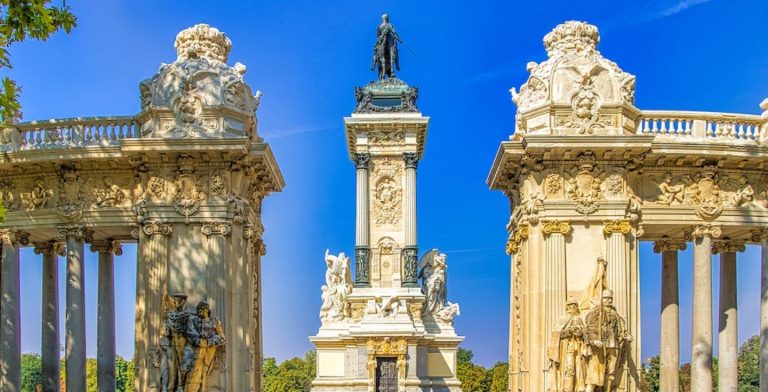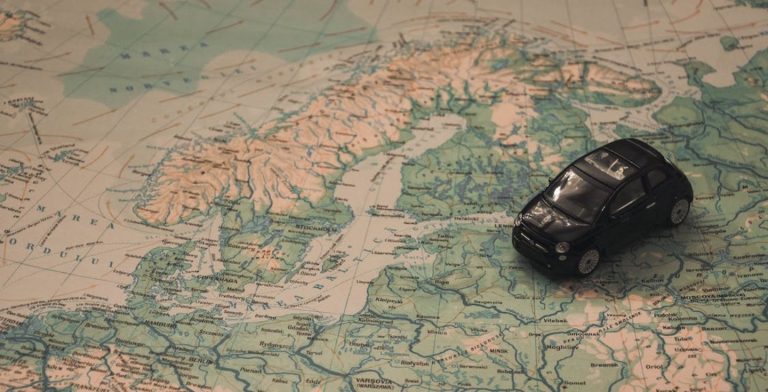Paris Travel Guide
Unlock the City of Lights with our Paris Travel Guide! Explore the best of Paris while staying connected seamlessly with eSIM.
Even when in love, you still need an itinerary to roam the City of Light. Our comprehensive Paris travel guide will provide you with everything you need to know to explore this metropolis. We’ll include information about when and where to go to Paris, important details, how to get a data connection and much more! Whether you’re planning a quick weekend getaway or an extended stay, let’s explore the magic of Paris together.
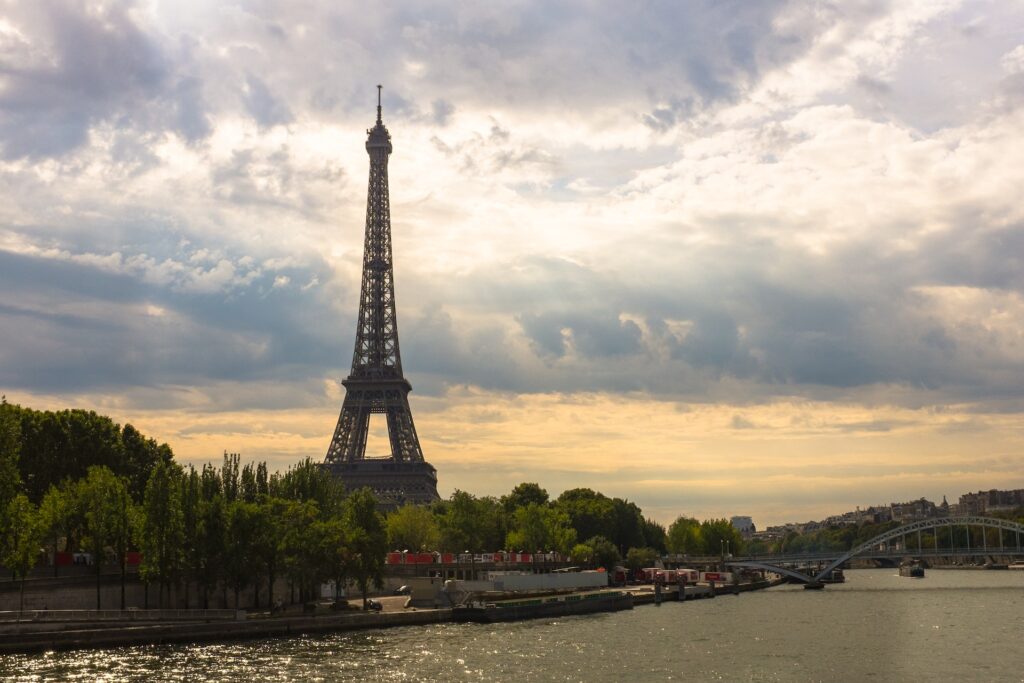
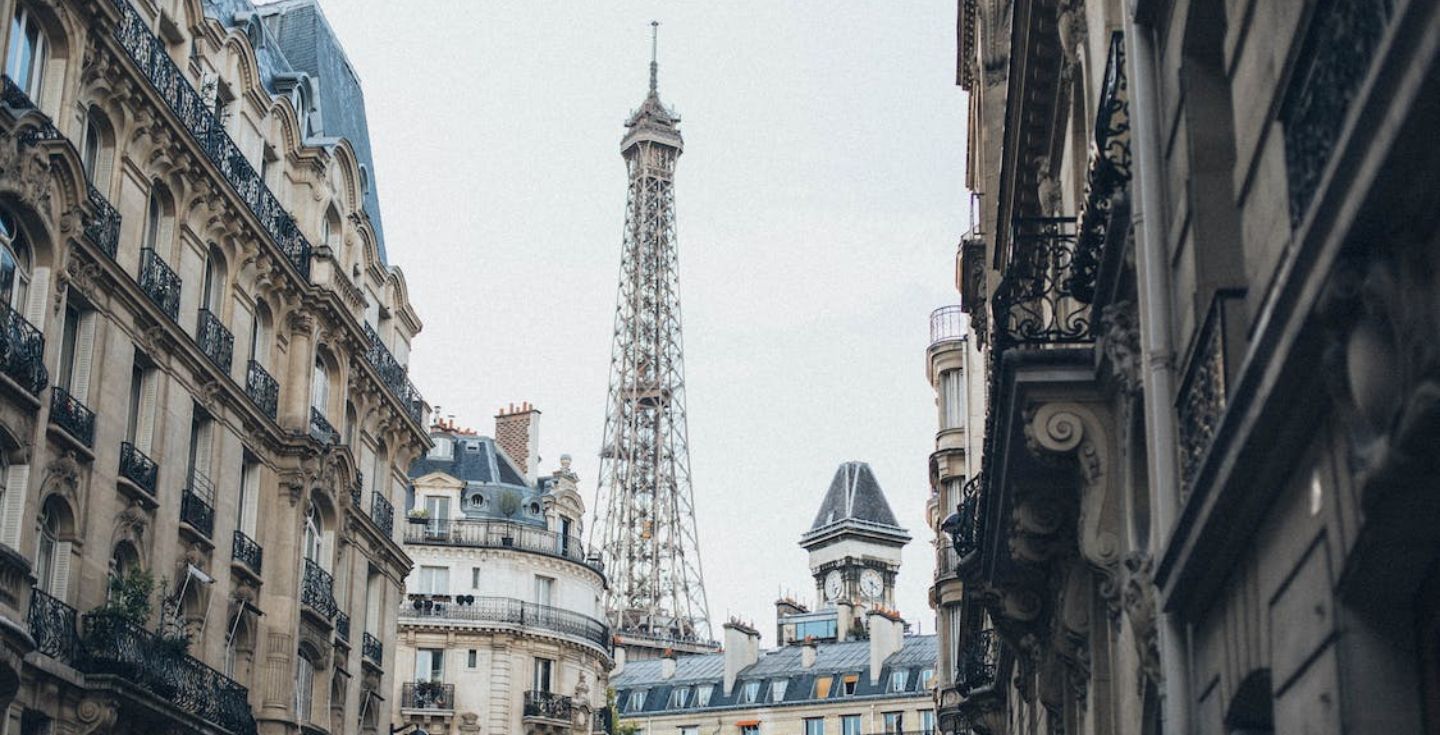


 +1M
+1M
With Holafly, you save +30% compared to roaming fees
Plans that may interest you
Why go to Paris?
Paris, often referred to as the “City of Love” and the “City of Lights,” is a dream destination for millions around the world. This enchanting metropolis brings together influences from some of the most decisive moments in history, from the Roman invasions to medieval times up to contemporary revolutions. Each period has left its mark in art, culture, and modernity, offering an experience like no other. Here are a few reasons why you must visit Paris, and moreover why you need this travel guide:
Iconic Landmarks: Paris hosts some of the world’s most recognizable landmarks, including the Eiffel Tower, Notre-Dame Cathedral, and Montmartre.
Romance in the Air: As soon as you land, you can feel the romantic ambiance of Paris. Whether you’re strolling along the Seine River, sharing a moment at a traditional café, or exploring charming neighborhoods hand in hand, love is everywhere.
Culinary Delights: Parisian cuisine is a gastronomic delight. From croissants and escargot to Michelin-starred restaurants, you can savor a diverse range of flavors.
Art and Culture: The Louvre houses a vast collection of art, including the famous Mona Lisa, while the Palace of Versailles showcases opulence and history. Paris is an art lover’s paradise and if you’d like to, you can go on a guided tour, a delight while you travel.
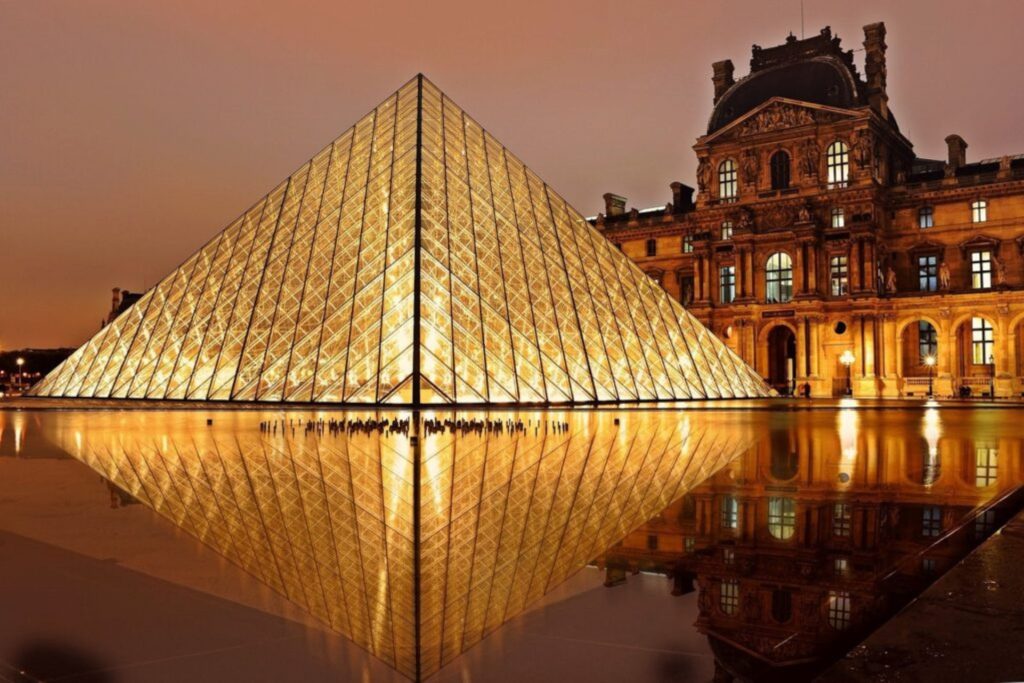
Fashion Hub: Paris is synonymous with high fashion. Explore luxury boutiques along the Champs-Élysées or discover unique finds in vintage stores and local markets. We’ll look further into Parisian fashion later in this discussion.
What to Know When Touring Paris
Before you dive into your Parisian adventure, there are some key details you should know:
Local Time: Paris goes by the Central European Time (CET). Make sure to adjust your watch or devices accordingly so you don’t end up confused about times and schedules.
Currency: The official currency in France is the euro (€). ATMs are widely available for cash withdrawals. When it comes to currency exchange, we recommend getting some euros before you leave home and then exchanging the rest at a local bank. The airport can be very expensive and charge high commission rates.
Visa Requirements: Check if you need a visa to enter France. Requirements vary depending on your nationality and the purpose of your visit. It’s imperative that you check this before you actually purchase your tickets so you don’t end up losing money.
Language: French is the official language, but English is widely spoken in tourist areas. Learning a few basic French phrases can enhance your experience.
Basic French
| French | English |
| Bonjour | Hello |
| Bonsoir | Good evening |
| Bon appétit | Enjoy your meal |
| S’il vous plaît | Please |
| Merci | Thank you |
| Oui | Yes |
| Non | No |
| Excusez-moi | Excuse me |
| Où est… ? | Where is…? |
| L’addition, s’il vous plaît | The check, please |
| Parlez-vous anglais ? | Do you speak English? |
| Combien ça coûte ? | How much does it cost? |
| Je ne parle pas bien français | I don’t speak French very well |
| Aidez-moi | Help me |
| Je voudrais… | I would like… |
| Où sont les toilettes ? | Where is the restroom? |
| Je suis perdu(e) | I am lost |
| Pouvez-vous prendre une photo? | Can you take a photo? |
| J’aimerais une bouteille d’eau | I would like a bottle of water |
| L’heure, s’il vous plaît | The time, please |
Weather: Paris experiences all four seasons and no matter when you travel, you’ll encounter different climates, as you’ll see through this guide. Summers (June to August) are warm, while winters (December to February) can be cold. Spring and fall offer milder temperatures, making them popular times to visit. Remember to dress according to the season, keep reading and find out what clothing to pack.
Exploring Paris: What Do I Need?
For a smooth and enjoyable trip, ensure you have the following essentials:
Valid Passport: Make sure your passport is up-to-date with at least six months of validity and with available pages to stamp at customs.
Travel Insurance: As part of this guide, It’s wise to invest in travel insurance to protect yourself against unforeseen events like trip cancellations or medical emergencies while in Paris. Generally, a comprehensive policy offers coverage for around $30.000.
Electrical Adapters: Paris uses the European Type C and Type E electrical plugs. Bring the necessary adapters to charge your devices.
What to Wear When in Paris
Parisians have a reputation for their impeccable fashion sense. When deciding what to wear, keep these tips in mind:
Chic but Comfortable: Parisians value style, so pack a mix of fashionable and comfortable clothing. Layering is key, as the weather can be unpredictable. But be aware of the season and weather conditions so you don’t end up freezing or sweating with too much clothing.
Footwear: Invest in a good pair of comfortable walking shoes, as you’ll likely do a lot of exploring on foot.
Dress for the Season: Adjust your wardrobe based on the time of year you’re visiting. Pack sunscreen for summer and warm layers for winter.
Most Popular Time to Visit Paris
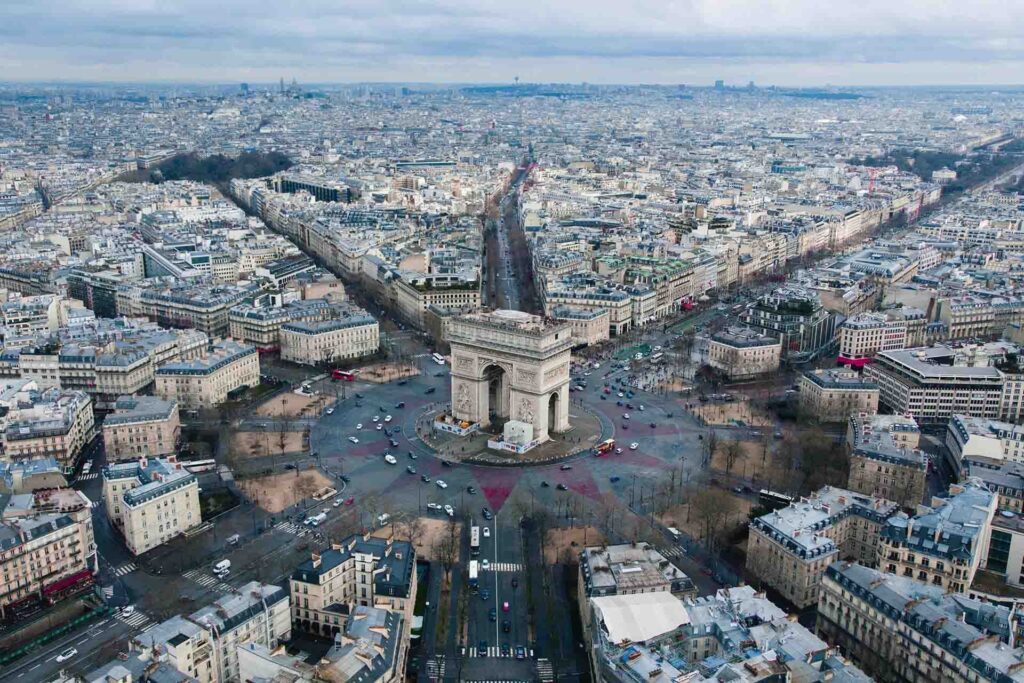
Overall, April through June is when most tourists travel to Paris. Tourists tend to favor this time of year for a number of different reasons. Daytime highs in the 15°C to 25°C (59°F to 77°F) range during the spring in Paris make for pleasant outdoor activities. Because of this, exploring the outdoors and taking in the sights is a breeze.
Compared to the busiest summer season, spring is a great time to visit Paris because there are fewer tourists. As a result, you may expect reduced wait times at popular attractions and more options at nearby hotels and eateries. There are many cultural events and festivals to enjoy in Paris during the springtime, in addition to the milder temperatures and smaller crowds. The city comes to life with live music performances on the 21st of June for the Fête de la Musique (Music Day).
How Long Should a Trip to Paris Be?
The ideal duration of your trip depends on your interests and schedule. Here’s a rough guide for different scenarios depending on what you want to do while you travel through Paris:
Weekend in Paris
Day One: Friday, Arrival and a stroll in the Evening
When you go to Paris, find a place to stay, and then enjoy an evening stroll. Start your explorations on Île de la Cité with a trip to the stunning Notre Dame Cathedral. After that, head to Île Saint-Louis for some ice cream from Berthillon. End the day with a delicious meal at a quaint restaurant before taking a romantic cruise along the Seine to see Paris lit up for the evening.
Day Two: Saturday, See Famous Sights in Paris
You should begin your day with some art and history at the Louvre. You can take a stroll down the famed Champs-Élysées after lunch in the Les Halles neighborhood and then visit the Eiffel Tower for breathtaking views. Enjoy a night out in the bohemian atmosphere of Montmartre while dining on authentic French food.
Day Three: Sunday, Gardens and Goodbyes
Visit the peaceful Luxembourg Gardens first thing in the morning before eating a traditional French breakfast at one of the many cafés in the area. Discover a cozy café in the charming Saint-Germain-des-Prés neighborhood for a leisurely midday meal. In the afternoon, you can either take a side trip to Versailles or keep on touring the rest of Paris. Enjoy a final meal in Paris at a favorite restaurant as the sun sets on a perfect weekend getaway.
5 Days in Paris
Day One: Must-See Icons
Start your exploration of Paris with visits to its most famous sights. The first stop of the day is at the iconic Eiffel Tower. Scale its heights for a bird’s-eye perspective of the city below. The next stop should be the famed Champs-Élysées, where you can people-watch while sipping coffee in a quaint café. Explore the history and art of the Louvre, home to the mysterious Mona Lisa. Take a romantic sail along the Seine as the sun sets over Paris.
Second Day: Arts and Culture
The second day will focus on cultural activities. Visit the iconic Notre Dame Cathedral first. Get to the top of it for awe-inspiring views of Paris. Visit the beautiful Île de la Cité and have a delicious supper at a neighboring café while taking in the authentic Parisian atmosphere. In the afternoon, you can either spend time in the lavish Palace of Versailles or wander the city’s districts searching for its lovely mysteries.
Third Day in Paris: Montmartre and Food
Explore Montmartre, the city’s cultural epicenter. Take a stroll through the narrow cobblestone alleyways and stop by the vibrant Place du Tertre to see local artisans at work. Sacré-Coeur Basilica, with its breathtaking vistas, should not be missed. Try some authentic French cuisine at a local bistro to feel more at home in Paris. The culinary customs of Paris are showcased on this day.
Shopping and sightseeing on Day 4
Visit the Picasso Museum and the Musée d’Orsay to satisfy your inner artist. These illustrious galleries display works by artists from across the centuries. Enjoy a typical Parisian bistro meal after a morning or day of cultural exploration. Visit the ancient Le Marais district in the afternoon, a popular destination due to its picturesque streets, grand buildings, and tiny shops.
Gardens and Goodbyes on Day 5
Your final day in Paris will begin with a peaceful stroll through the beautiful Luxembourg Gardens. It’s a lovely spot to soak up the calm of Paris before heading to a neighboring café for a leisurely morning meal. Visit Saint-Germain-des-Prés for lunch and have a wonderful meal at a neighborhood café. Visit some of the unique shops and boutiques in this old neighborhood. Your five days in Paris will come to a close with a farewell supper, so pick a nice spot and take some time to think back on all the wonderful experiences you’ve had in this magical city.
The Paris Cuisine
Croissant
A quintessential French pastry, the croissant is a delicate, crescent-shaped delight known for its buttery, flaky layers. Best enjoyed fresh from a Parisian bakery, it pairs perfectly with a steaming café au lait, making it a staple for breakfast or brunch. The croissant’s origins are interestingly traceable to Vienna before the French adopted it and made it a symbol of Parisian café culture.
Baguette
Parisians take their bread seriously, and the baguette is a revered icon. With its golden, crisp crust and soft, airy interior, it’s the epitome of French bread. The tradition of the baguette is so important in France that there are even laws regulating its production, ensuring that it maintains its exceptional quality.
Coq au Vin
A beloved classic, coq au vin is a French dish that slow-cooks chicken in red wine, infusing it with rich, robust flavors. Typically, it comes with lardons (bacon strips), mushrooms, and onions. It’s a testament to the art of French cuisine, dating back centuries and celebrating the rich agricultural history of the country.
Macarons
Paris is renowned for its dainty macarons and exquisite almond meringue cookies, available in a delightful spectrum of flavors and colors. These delightful confections are often found in the display windows of Parisian patisseries and have been mastered to perfection by generations of pastry chefs.
Cassoulet
Hailing from the southwestern region of France, cassoulet is a hearty casserole featuring white beans, duck or pork, and sausage. This dish is known for its rustic, comforting qualities and is traditionally slow-cooked in an earthenware pot called a “cassole.” It’s an embodiment of the French culinary heritage.
Crème Brûlée
A timeless dessert, crème brûlée is a creamy custard with a luscious caramelized sugar topping. The name itself, which means “burnt cream,” reflects the signature step of torching the sugar to create a satisfyingly crackling surface. This dessert embodies the art of contrasting textures and flavors.
French Onion Soup
A hearty and comforting soup, French onion soup features sweet, caramelized onions simmered in flavorful beef broth. Topped with a layer of melted cheese and a toasted slice of baguette, it’s the epitome of comfort food in France, particularly in the chillier months.
How to Stay Connected in Paris
As we mentioned before in this guide, staying connected is essential for modern travel and Paris is not the exclusion. Paris offers various options to ensure you remain connected. Each option has its pros and cons, in terms of quality service and prices or rates. Depending on your consumption and if you want to connect to stay on social media or even for work, there’s a lot to choose from.
Free WiFi in Paris
Many cafés, libraries, parks, and public spaces in Paris offer free WiFi. Take advantage of these hotspots for quick internet access. Keep in mind that these hotspots may be open to the public. These networks are vulnerable, and hackers may gain access to your devices and information. We recommend only using this option in case of an emergency, and don’t provide any sensitive information or open sensitive apps.
Local SIM Card
Purchase a local SIM card from providers like Orange, SFR, or Bouygues Telecom for affordable mobile data and call plans. You can get one once you land at the airport, but be aware that they are expensive. If you wait until you’re in the city, you can look for one but you’ll be wasting valuable time when you could be traveling and getting to know the sites. Additionally, if you don’t know French, this could also be a barrier.
Roaming Services
Check with your home mobile provider for international roaming options. However, be cautious of potential high roaming charges.
eSIM
Consider using an eSIM for convenient and cost-effective connectivity while in Paris. This recent innovation has helped millions connect easily from wherever they are without the need for a new SIM card. You can simply check with international providers like “Holafly.”
As we mentioned, international providers like Holafly offer an affordable and reliable eSIM solution for travelers. Stay connected seamlessly with their user-friendly eSIM service. All you need is a compatible smartphone.
Go to their website to choose your eSIM and complete the payment. You can use several payment methods, including Pay By Bank in France with the Holafly App.
You’ll get your activation QR and connect by scanning the code with your phone. With unlimited data and data sharing, you won’t have to worry about a thing!
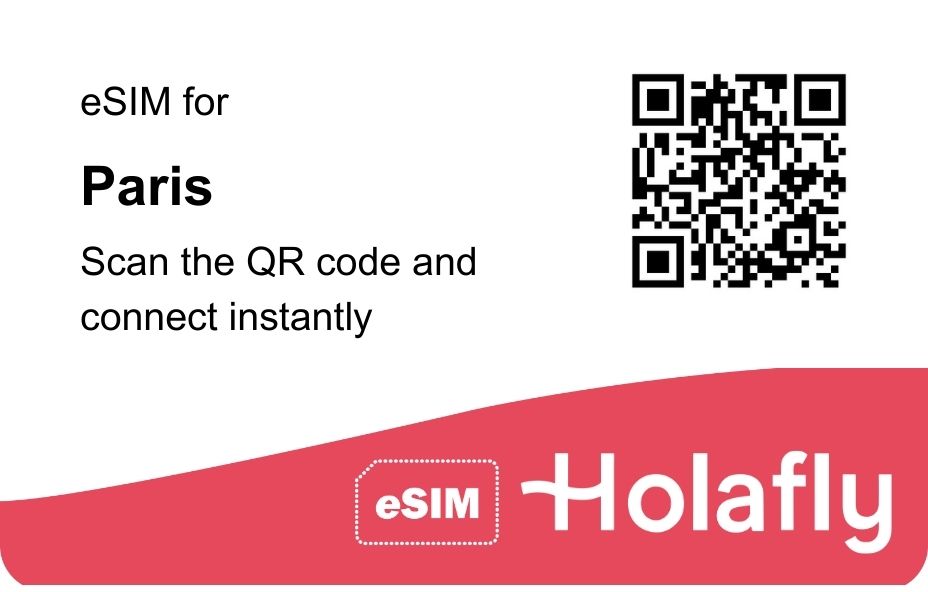
Paris Metro Travel Guide
Navigating Paris is a breeze thanks to the extensive metro system. Here’s a guide to help you get around efficiently in Paris during your travel:
How the Paris Metro Works: The Paris metro is user-friendly and cost-effective. It connects major attractions and neighborhoods, making it an ideal mode of transportation. There are over 300 stations, spanning around 214 kilometers and 303 metro lines. The Paris Metro system is one of the oldest in the world; inaugurated in 1900, it is 123 years old!
Fares: Purchase single tickets or multi-day passes to save on transportation costs. Make sure to validate your ticket at the metro entrance. The metro fare is currently $2.21. But there are also tourists pass that work for an extended time depending on how long you’ll be in Paris.
Metro Map: Familiarize yourself with the Paris metro map to plan your routes. You can easily find downloadable maps online or use mobile apps.
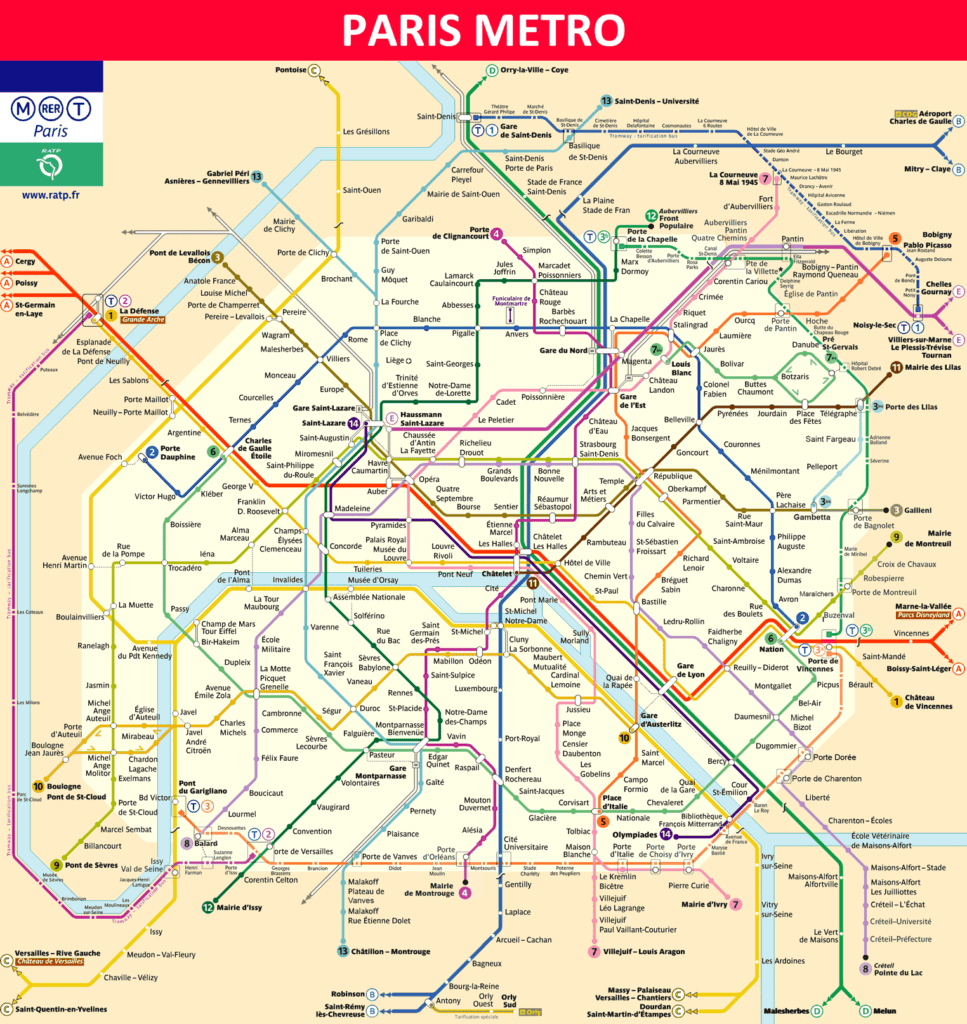
Safety: The Paris metro is generally safe. However, be vigilant about pickpockets, especially in crowded trains and stations. Petty crimes are common in public and crowded places.
Other Transportation Options
Besides the Paris Metro, you can also move around through the city with other options. Each one offers its own convenience and rates or fares. Depending on whether you want to be comfortable or are on a budget, there’s always something available for you.
Bus
Getting around Paris’ many neighborhoods and tourist hotspots is a breeze thanks to the city’s extensive bus transportation system.
T+ tickets: the generic single-ride option, may be purchased for about $2. After the first validation, riders have 90 minutes to use the card on any combination of buses and trams.
Carnet: Consider buying a carnet, a discounted 10-ticket pack of T+ if you anticipate frequent bus travel.
- Fun Fact: Night buses (Noctilien) operate between the hours of 6:30 p.m. and midnight daily.
Tram
Paris’s tram system is expanding, and its many routes connect the city’s various neighborhoods and districts in convenient ways.
The single T+ ticket costs roughly $2.11, making trams just as affordable as buses. Tram and bus rides can be utilized with the same ticket.
Trams are a convenient way to go around the suburbs, and their services run from dawn until late.
The RER
The RER or Réseau Express Régional, is a rail system that links the outskirts of Paris with the city proper. It’s a quick and easy method to go throughout the greater Paris region.
The cost of taking the RER depends on how many zones you travel through in Paris. The base fee for a single ride is $2 in Zone 1 (the downtown area) and rises to roughly $12.75 for longer journeys (such as to the airports).
If you anticipate making frequent use of the RER, it is recommended that you invest in a Navigo card. For a weekly or monthly cost, the Navigo card allows for unlimited rides inside predefined zones.
Depending on the line and the day of the week, RER services may begin and end service earlier or later than 5:30 AM and 12:00 AM, respectively.
Taxis
Taxis are easy to come by in Paris, and they might be a helpful mode of transportation if you’re carrying luggage or going somewhere in a large group.
- The base fare for a taxi ride is usually around $2.11, with additional per-kilometer fees of between $1.11 and $1.42.
- It is possible to spend between $52.67 and $63.21 on a cab ride from Charles de Gaulle Airport to the heart of Paris.
If you intend to use one of these services to get around Paris, it’s a good idea to familiarize yourself with the routes and schedules ahead of time. Keep in mind that it is easy to transfer between buses, trams, and the RER as part of the public transportation network. Taxis, on the other hand, offer greater versatility at the expense of cheaper public transportation.
Get out there and experience Paris!
Paris is a city that captures the heart and soul of every traveler. Its timeless beauty, captivating culture, and romantic charm make it a destination like no other. So now that you know what you need and what to do, get your tickets, pack your bag and remember to post a picture while there. Connect easily and don’t miss a beat!








 Language
Language  Currency
Currency  No results found
No results found




